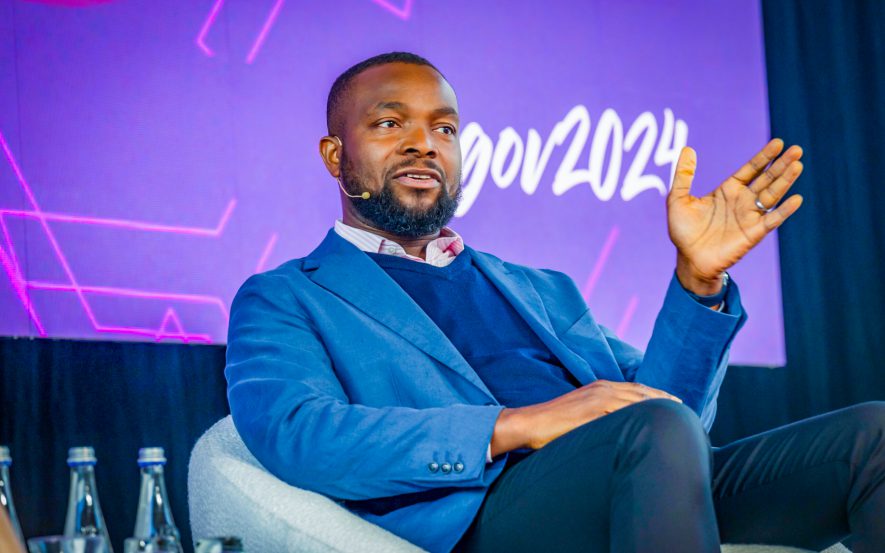The Federal Government has announced plans to invest N12 billion in digital economy research projects, aiming to ensure the country reaps the benefits of digital transformation.
The Minister of Communications and Digital Economy, Bosun Tijani, made this known at the opening ceremony of the 18th edition of the International Conference on Theory and Practices of Electronic Governance in Abuja, on Tuesday, themed ‘Shaping the Future of Digital Governance Through Cooperation, Innovation and Inclusion’ and it was organised by the National Information Technology Development Agency
According to Tijani, platforms such as ICEGOV provide nations with the opportunity to explore the potential of emerging technologies while aligning them with effective policies that address societal needs, Vanguard reports.
He noted that Nigeria’s participation in the 2024 edition of ICEGOV underscored the importance of deepening research in the digital economy, adding that the country’s impressive performance earned it the confidence of international partners to host the 2025 conference.
He stated, “The Nigerian government is not just doing this as a show because immediately after ICEGOV last year, we funded over 55 research projects.
“At the minute, we are putting together about N12 billion to fund further research projects that are focused on the digital economy.
“We are setting up three research clusters of six universities, each one focused on artificial intelligence, and another focused on the biggest issue in our nation today, which is connectivity, where we are investing significantly.
“Thirdly, because of our population, we are also funding another research cluster that is focused on digital skills and literacy.’’
He further noted that digital technologies have become central to human existence, stressing that any society that fails to embrace them risks being left behind in development.
He emphasised that these technologies should not be viewed merely as economic enablers but as powerful instruments for reshaping and governing modern societies.
Similarly, the Chair of the ICEGOV Steering Committee, Elsa Estevez, said artificial intelligence and its attendant risks demand stronger collaboration among countries, institutions, and all levels of government.
Estevez said, “In the past years, we were profoundly affected by digitally driven innovations, and we often adapt them without much reflection and such innovations dramatically change the way we interact, socially, work, build, and complement our capacities.
“We need to ensure that innovations are not just technological, but human-centred and contribute to better societies.
“For inclusion, governments, states need to listen and moderate discussions about public affairs, shape political agendas to respond to uncovered needs, secure the digital space of discussions on fake speech, fake news, and political manipulation.’’
She explained that safeguarding the public digital space hinges on effective regulation, education, and public awareness—anchored on strong information ethics.
Also speaking, the Director-General of the National Information Technology Development Agency, Malam Kashifu Inuwa, disclosed that the federal government plans to integrate digital literacy into the national school curriculum by 2026.
According to Inuwa, the move is aimed at ensuring that the technological growth of Nigeria’s youthful population aligns with the government’s digital development initiatives.
“In Africa, we have a very young population, our citizens are digitally native and they are all online, therefore governments need to meet them where they are.
“We have so many initiatives in Nigeria based on the ministry’s knowledge policy, we have the digital literacy framework, where we are working on integrating digital literacy into our formal education.
“As of today, we have the approval in collaboration with the Ministry of Education and directive of the President that by next year, we should have digital literacy and skills integrated into our formal education,’’ Inuwa said.
He further stated that the government is implementing measures to ensure that public servants acquire digital literacy skills, noting that this would enhance efficiency and improve service delivery across the public sector.
In May, Tijanin announced that the National Digital Economy Bill was set to return to the National Assembly for its second and third readings after extensive consultations across all 36 states of the federation.
The bill was originally introduced in 2024. The bill seeks to establish a robust legal framework for Nigeria’s growing digital economy.
It encompasses key areas such as electronic transactions, data protection, cybersecurity, and digital infrastructure development, aiming to foster innovation and ensure safe, inclusive participation in the nation’s digital transformation journey.
punch.ng
FOLLOW US ON:


























